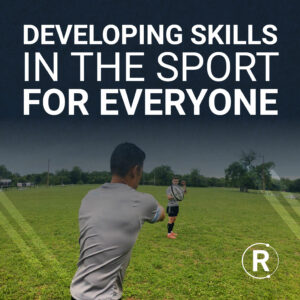You can play any sport and be good, but the moment that you take your sleep for granted performances will inevitably begin to waver and fall short of your potential. Losing sleep is not conducive to training as a rugby player. There are close ties to sleep and your recovery as an athlete.
To fully grasp the extent of this connection between performance and sleep, notably recovery, we have taken the time to lay out the main reasons for its importance.
Some aspects of this are quite technical, but if you understand the prominence of it all, you can progress and develop in your training to reach enhanced levels as a player while also seeing why your training can suffer without sleep.
What are the five stages of sleep?
In case you didn’t know, there are five clear stages of sleep, with one to four all closely tied before you reach the fifth; REM (rapid eye movement).
As we mentioned, the stages one through four are similarly tied because they are known as NREM (non-rapid eye movement sleep). While you’re going about your day, your beta brainwaves are in full control, operating to help you function with a mental state that’s actively aware of what is going on around you.
When you head off to bed, those beta brainwaves take to the sidelines and make way for alpha brainwaves to come to the fore. Alpha brainwaves work to give you an awake mental state, but you are much more relaxed in yourself.
After about five-to-twenty minutes of your alpha brainwave’s activity in your brain, there becomes a state of readiness that indicates to your brain that now is the time to enter stage 1 of sleep.
STAGE 1
Defined by theta brainwaves, this initial stage can go on for anything from 10 seconds right up to 10 minutes. It’s while you’re in Stage 1 that your breathing becomes shallower and your muscles begin to relax. Fun fact: you’ll know that you’re in stage 1 of sleep if you are drifting off and feel like you’re falling – resulting in the involuntary muscle jerks and wide-eyed look around the room to make sure everything is okay!
STAGE 2
This stage, which can last for anything from 10 to 20 minutes is the next progression of your sleep. Stage 2 is the point at which your body’s theta brainwaves start to become amalgamated with your sleep spindles and K-complex waves.
Sleep spindles effectively define the activation of actual sleep; this is because, at this point, you’re utterly unaware of almost all stimuli from an external perspective.
STAGE 3
As you move out of stage 2, and into stage 3 of your sleep cycle, a blend of your brain’s theta and delta brainwaves start to function. Delta brainwaves are more prevalent at this point and lead you into stage 4.
STAGE 4
Quite simply, this is when all of your theta brainwaves cease to operate, and you’re in the deepest of the stages of sleep.
Stage 3 and stage 4 are known together as ‘slow wave sleep.’ When you reach slow wave sleep, all of the chemical reactions involved in sustaining the living state of the cells and the organ in your body (your metabolic activity) is at its lowest.
A growth hormone is released in these stages, allowing for effective muscle repair and full growth happens. Post-delta sleep stage, which occurs for around half an hour to 40 minutes, your brain revisits stage 3 and stage 4.
REM SLEEP
You will quite possibly have heard of REM sleep a little more than the other stages, and this is the fifth and final step of your sleep cycle.
A plethora of things in your body kick in once you reach REM sleep, including:
- Increased blood pressure
- A rise in body temperature
- Escalation of breathing rate
- Higher heart rate
- A climb in your blood flow
If you have ever dreamed, something a vast majority of you have done in the past, it’s during REM sleep that your dreaming experiences occur.
Your beta brainwaves come back into play here, which supports the idea that your brain is experiencing higher rates of activity at this point. Your sleep cycle will typically go through four and six cycles each time you bed down for the night. Each cycle lasts in the region of an hour and a half.
If you sleep for longer, your sleep cycles will naturally ramp up, the time you spend in stage 3 and stage 4 will subsequently decrease, and your REM sleep expands.
Experts widely know it in the field of sleep that interruptions in sleep such as getting lower than recommended amounts and low-quality sleep are the biggest reasons for your restorative ability of sleep to be affected.
For players to train and play at peak performance and not suffer the effects of poor sleep, recommendations from many studies, researchers and official sites such as The Sleep Advisor (Check out their official homepage here), suggest encompassing a minimum of seven to nine hours of sleep each evening.
The effects of sleep deprivation
If you’re a player who loves to stay up late until the small hours or keeps their sleep to a minimum in favor of other activities, then you should be made aware of some of the issues that can come as a result. By making sleep an essential part of your training, you can become a better rugby player!
Sleep deprivation issues include:
- A deficiency in your mental stamina, causing drop-offs in decision-making, information processing, and focus.
- Reduced growth hormone release, which impacts muscle strength and recovery levels.
- Diminished production of glycogen and carbohydrates (for energy), both of which are stored for and kept in preparation of exercise.
- Amplified quantities of the stress hormone, cortisol.
You can expect to endure bouts of tiredness and a lack of energy, along with low-quality concentration during your training sessions – apparently, this is not a good trait and will leave you struggling to complete sessions properly or find positives at the end of training.
Do power naps aid training?
As a rugby player, you can rest assured that using power naps to your advantage is a positive contributor. Naps aid in your recovery and restoration and research has shown that what we refer to as power naps; a short period of sleep during the daytime that lasts no longer than one hour can be utilized to help with the following:
- Improvements in alertness
- Boosts natural HGH
- Greater productivity
- Better, happier moods
- Enhanced performance of tasks
How can you enhance your sleep?
So, after all that, we’ve put together a bunch of practical guidelines that you can use to your gain that will help enhance your quality of sleep. Bear these pointers in mind when you’re trying to optimize your sleep, and you won’t go far wrong!
- Try to avoid taking high-protein meals, alcohol, and caffeine on board within a three-hour time-frame before going to bed.
- Try not to let any issues from the day/week stay on your mind when you go to bed.
- Make your sleeping space as dark as possible; install blackout curtains and remove smart devices from your room.
- Recognize how much sleep you need to feel at full capacity each day and don’t waver from this amount.
- Establish a regular, healthy sleep and wake routine that will help you to sleep when the time’s right and perform when you are in training.
- Adopt some breathing techniques, such as meditation to help relax you before you go to sleep.
- Keep your bedroom as quiet as you can, making it a sanctuary-like environment your body associates with sleep and relaxation.
- Make sure that your bedroom is always at the optimum cool temperature to promote healthy sleep.
These steps are a significant portion of the sleep-based material that rugby players of all abilities can use to find those marginal gains in their performance on the training field and game day. We hope this helps you to enjoy your sport more and your quality of sleep improves as well!
REFERENCES
Photo Credit: Gareth Davies


